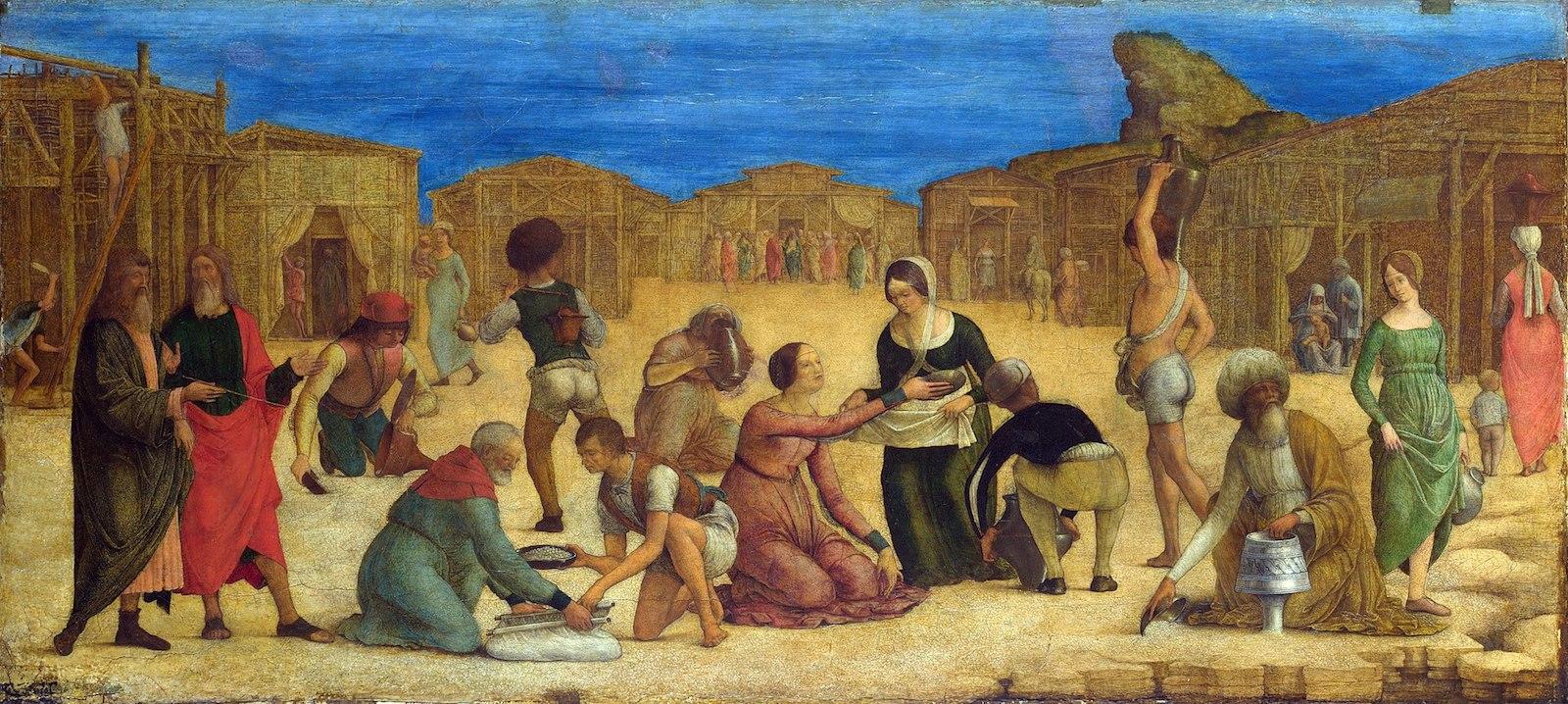We Jews mark that day, Tisha B'av, every year, in memory of the two destructions, as if nothing happened in between.
That elision is certainly consistent with how I learned Jewish history. In my education, there was a big blank between the return from the Babylonian Exile and the conquest of Jerusalem by the Roman general Titus.
Only the Maccabean revolt was stuck in the middle (the way Chanukah is stuck in the middle between the fall holidays and Pesach in the spring).
For someone like me, then, From Text to Tradition : A History of Second Temple and Rabbinic Judaism does a great service.
I picked up this book while I was taking part in a 929 daily discussion of the Tanach. We had reached the biblical books of Ezra and Nehemiah, and I was confused. Who were these people, and how did they relate to some of the figures I'd read about earlier in Zechariah (Zerubabel and Joshua ben Jehozadak)? Who were the Jews who never went into Babylonia? What were people from other countries doing in Judea now? And who were the Samaritans, and why was there (what seemed like) sibling rivalry between them and the Jewish leaders?
Schiffman clarifies many of these points and makes me want to learn even more about them. He goes on to talk about Jewish life during the age of Alexander the Great and his successors, especially the Ptolemies in Egypt and the Seleucids in Syria, not only in the holy land but all around the Middle East. In Judea itself, he briefly addresses the conflicts between high priests and Hasmonean monarchs (descendants of the Maccabees)--and among the members of the royal family themselves.
An aside: Why, I wonder, have there not been as many novels about the Hasmoneans as about the Tudors, or the Medici? The rivalry in the court of Salome Alexandra is certainly as dramatic as the politics under Elizabeth I. There is fertile ground here for fiction writers!
Schiffman purports to be writing a history of Judaism, not Jews, during this period. Repeatedly, however, he makes the point that you cannot understand how Jewish thought and practice evolved without paying attention to the social and political pressures that shaped it.
This seems especially true for the period just before the destruction of the Second Temple. Knowing what was going on between different "political parties" in Judea and their relations to Hellenism, to Roman rule, and to nations fighting against Rome (like the Parthians) is vital to understanding Jewish sects like the Sadducees, Pharisees, Essenes, the people at Qumran, and the Jesus-followers who eventually became a separate religion.
There are some texts that were written by Jews that have played a more important part in Christianity and in historiography than in Judaism. These include the Septuagint, the apocrypha, the pseudepigrapha, the philosophy of Philo Judaeus, and the history written by Josephus. Schiffman explains that the Greek-speaking Jews of the diaspora might at one time have been familiar with these, but they increasingly were absorbed either into the Greek-speaking Christian world or into the Hebrew-speaking, Palestine-centered Jewish sphere.
Then he goes on to explain the texts that did become central to rabbinic Judaism (which with very few exceptions is Judaism as we know it today): the Mishnah, the baraita, the Palestinian and Babylonian Talmuds, the books of midrash.
Whew! I see I cannot discuss this book without doing a lot of name-dropping. If you are not at all familiar with this history, perhaps Schiffman is not the best one to introduce you to it.
If you're in a similar place as I am however--very familiar with some of these people, places, and things and only vaguely familiar with others--then he may be a good teacher to put them together into a more complete picture.
I note, however, that this book was published thirty years ago, and the author was already hoping that recent discoveries and studies would fill out the picture more. If you know of a more up-to-date book that compares to this, would you please suggest it to me?









